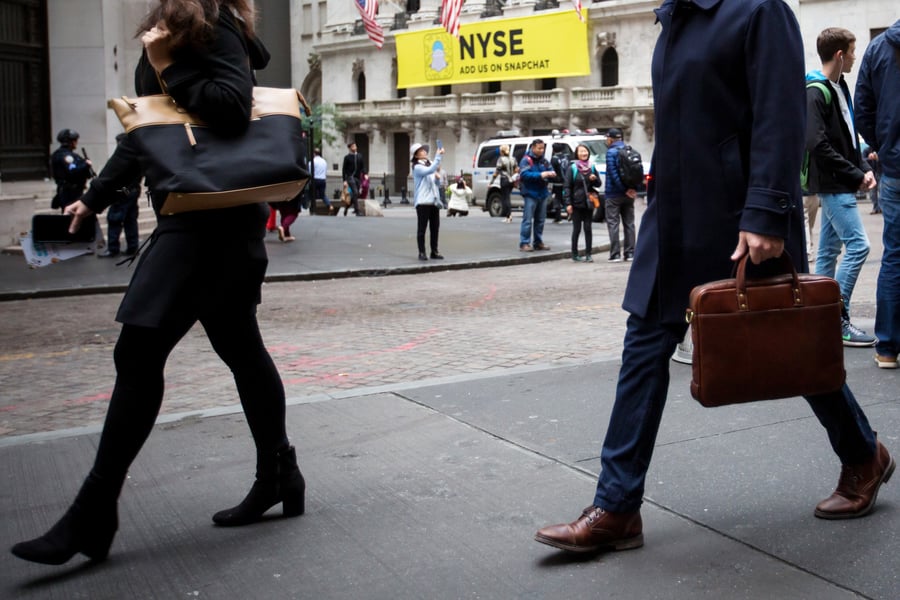After wrapping up its worst week of the year, the slide in stocks gained momentum as the trade war between the U.S. and China took on a new dimension.
(
More:
Are China trade tensions a concern among your clients?)
Equity losses accelerated after China let the yuan tumble to its weakest level in more than a decade and asked state purchasers to halt imports of American agricultural products. The S&P 500 Index dropped as much as 2.4% on Monday, the most since May. Treasuries rallied, with the 10-year yield dropping to its lowest since October 2016, as investors rushed into perceived safer assets.

Here's a sampling of Wall Street reactions:
Lindsay Bernum, head of macro at Smith Capital Investor
"The market doesn't have the ability to really wrap its hands around this because you are dealing with human aspects here and more behavioral psychology than you are — like in July. We could look at the economic data and see the economic data remains stable, the Fed came and supported the market even more. This isn't one of those things — this give you that huge umbrella of uncertainty. What the market is telling you is people are very fearful. Momentum takes off when you have fear, when you have overly bullish fears of exuberance and so right now the market is in a place of fear and momentum is really taking over."
(
More: The Economics of an Extended U.S.-China Trade War)
Tom Essaye, a former trader who founded "The Sevens Report" newsletter
"It's not good, obviously. I think that it really surprised a lot of people and I think it underscores that this is not a problem that's going to be solved in the near-term. For two years now, we've been dealing with this almost — a year and a half anyway. It seems like the market keeps convincing itself that it's just going to work out at some point. Especially with the election looming now a year away, I think we have to prepare for this to just be with us for at least the next 14 months. Obviously we can always have a positive surprise but the main takeaway for investors is this is a headwind on global growth."
Wayne Wicker, the chief investment officer at Vantagepoint Funds
"There is just uncertainty of where we go from here in terms of the impact of the decision to devalue the Chinese currency. The longer effects of that will be either damaging the existing conversations that are going on or more reflective of the fact that the markets are going to have to get more comfortable with further prolonging negotiations with China."
Charles Lemonides, chief investment officer of ValueWorks
"There's no nuance for it. We were in an extended place and we got bad news on something that's important and there's concern that it's going to get worse. It's been something that we've been hoping we would make headway and now we're increasingly getting a sense that instead of making progress, it could get a lot worse."
Peter Cecchini, the global chief market strategist at Cantor Fitzgerald
(
More:
Markets tumble as trade war escalates)
"The fundamentals are impacted by the trade war and by tariffs, but that's not the only reason for the sell-off here. I think it's a deeper wound in the global economy that the market is suffering right now. There were three catalysts in December: the first was valuation, then we had positive catalyst on trade and a dovish pivot by the Fed. Now we have a reversal of the trade optics, we've pretty much got what we're going to get out of the Fed. In the absence of the Fed restarting QE, which we don't expect at any point, and in terms of growth and earnings, we have the S&P trading at 19 times earnings, earnings have flattened out at best, and global growth continues to look pretty weak."







